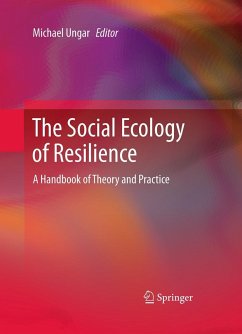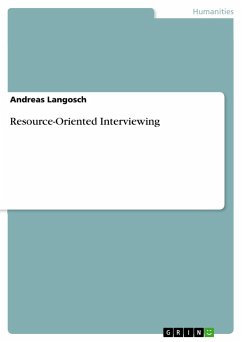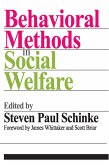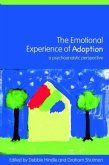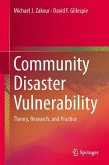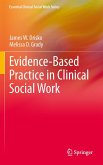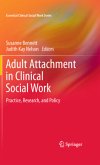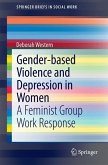The Social Ecology of Resilience
A Handbook of Theory and Practice
Herausgegeben:Ungar, Michael
The Social Ecology of Resilience
A Handbook of Theory and Practice
Herausgegeben:Ungar, Michael
- Broschiertes Buch
- Merkliste
- Auf die Merkliste
- Bewerten Bewerten
- Teilen
- Produkt teilen
- Produkterinnerung
- Produkterinnerung
More than two decades after Michael Rutter (1987) published his summary of protective processes associated with resilience, researchers continue to report definitional ambiguity in how to define and operationalize positive development under adversity. The problem has been partially the result of a dominant view of resilience as something individuals have, rather than as a process that families, schools,communities and governments facilitate. Because resilience is related to the presence of social risk factors, there is a need for an ecological interpretation of the construct that acknowledges…mehr
Andere Kunden interessierten sich auch für
![Resource-Oriented Interviewing Resource-Oriented Interviewing]() Andreas LangoschResource-Oriented Interviewing17,95 €
Andreas LangoschResource-Oriented Interviewing17,95 €![Behavioral Methods in Social Welfare Behavioral Methods in Social Welfare]() Steven Paul SchinkeBehavioral Methods in Social Welfare77,99 €
Steven Paul SchinkeBehavioral Methods in Social Welfare77,99 €![The Emotional Experience of Adoption The Emotional Experience of Adoption]() Debbie Hindle / Graham Shulman (eds.)The Emotional Experience of Adoption66,99 €
Debbie Hindle / Graham Shulman (eds.)The Emotional Experience of Adoption66,99 €![Community Disaster Vulnerability Community Disaster Vulnerability]() Michael J. ZakourCommunity Disaster Vulnerability81,99 €
Michael J. ZakourCommunity Disaster Vulnerability81,99 €![Evidence-Based Practice in Clinical Social Work Evidence-Based Practice in Clinical Social Work]() James W. DriskoEvidence-Based Practice in Clinical Social Work54,99 €
James W. DriskoEvidence-Based Practice in Clinical Social Work54,99 €![Adult Attachment in Clinical Social Work Adult Attachment in Clinical Social Work]() Adult Attachment in Clinical Social Work67,99 €
Adult Attachment in Clinical Social Work67,99 €![Gender-based Violence and Depression in Women Gender-based Violence and Depression in Women]() Deborah WesternGender-based Violence and Depression in Women39,99 €
Deborah WesternGender-based Violence and Depression in Women39,99 €-
-
-
More than two decades after Michael Rutter (1987) published his summary of protective processes associated with resilience, researchers continue to report definitional ambiguity in how to define and operationalize positive development under adversity. The problem has been partially the result of a dominant view of resilience as something individuals have, rather than as a process that families, schools,communities and governments facilitate. Because resilience is related to the presence of social risk factors, there is a need for an ecological interpretation of the construct that acknowledges the importance of people's interactions with their environments. The Social Ecology of Resilience provides evidence for this ecological understanding of resilience in ways that help to resolve both definition and measurement problems.
Produktdetails
- Produktdetails
- Verlag: Springer / Springer New York / Springer, Berlin
- Artikelnr. des Verlages: 86279858, 978-1-4614-8092-1
- 2012 edition
- Seitenzahl: 463
- Erscheinungstermin: 6. Juni 2013
- Englisch
- Abmessung: 253mm x 177mm x 33mm
- Gewicht: 876g
- ISBN-13: 9781461480921
- ISBN-10: 1461480922
- Artikelnr.: 38233931
- Herstellerkennzeichnung
- Libri GmbH
- Europaallee 1
- 36244 Bad Hersfeld
- gpsr@libri.de
- Verlag: Springer / Springer New York / Springer, Berlin
- Artikelnr. des Verlages: 86279858, 978-1-4614-8092-1
- 2012 edition
- Seitenzahl: 463
- Erscheinungstermin: 6. Juni 2013
- Englisch
- Abmessung: 253mm x 177mm x 33mm
- Gewicht: 876g
- ISBN-13: 9781461480921
- ISBN-10: 1461480922
- Artikelnr.: 38233931
- Herstellerkennzeichnung
- Libri GmbH
- Europaallee 1
- 36244 Bad Hersfeld
- gpsr@libri.de
Michael Ungar, Ph.D. is the author of 9 books and more than 70 articles and book chapters. His works include The We Generation:Raising Socially Responsible Kids, Too Safe for Their Own Good: How Risk and Responsibility Help Teens Thrive, Counseling in Challenging Contexts,and Strengths-based Counseling with At-risk Youth. He has practiced for over 25 years as a Social Worker and Marriage and Family Therapist with children and families in child welfare, mental health, educational and correctional settings. Now a University Research Professor, and Professor at the School of Social Work, at Dalhousie University in Halifax, Canada, he leads an international team of resilience researchers that spans more than a dozen countries on six continents. In addition to his research and writing interests, Dr. Ungar maintains a small family therapy practice for troubled children, youth and their families.
I. Introduction to the Theory.- Social Ecologies and their Contribution to Resilience.- Resilience: Causal Pathways and Social Ecology.- Theory and Measurement of Resilience: Views from Development.- Resilience and Children's Work in Brazil: Lesson from Physics for Psychology.- II. Five Interviews.- An Interview with Macalane Malindi: The Impact of Education and Changing Social Policy on Resilience During Apartheid and Post-Apartheid in South Africa.- An Interview with Bill Strickland: How Community-based Adult Educational Facilities can Lift People out of Poverty in Urban America.- An Interview with Jude Simpson: Growing Beyond a Life of Abuse and Gang Involvement in New Zealand.- An Interview with Vicki Durrant: Creating a Community Program for High-Risk Aboriginal Youth in Canada's North.- An Interview with Arn Chorn-Pond: Helping Children in Cambodia Through the Revival of Traditional Music and Art.- III. The Individual (in context).- From Neurons to Social Context: Restoring Resilience as a Capacity for Good Survival.- Situating Resilience in Developmental Context.- Temporal and Contextual Dimensions to Individual Positive Development: A Developmental-Contextual Systems Model of Resilience.- Girls' Violence: Criminality or Resilience?- IV. The Family.- Facilitating Family Resilience: Relational Resources for Positive Youth Development in Conditions of Adversity.- Contexts of Vulnerability and Resilience: Childhood Maltreatment, Cognitive Functioning and Close Relationships.- Averting Child Maltreatment: Individual, Economic, Social and Community Resources that Promote Resilient Parenting.- Caring Relationships: How to Promote Resilience in Challenging Times.- Young People, Their Families and Social Supports: Understanding Resilience with Complexity Theory.- V. The School.-Local Resources and Distal Decisions: The Political Ecology of Resilience.- Caring Teachers: Teacher-youth Transactions to Promote Resilience.- Children with Disabilities and SupportiveSchool Ecologies.- Resilience in Schools and Curriculum Design.- VI. The Community.- How Prior Social Ecologies Shape Family Resilience Amongst Refugees in U.S.Resettlement.- Young People, Sexual Orientation, and Resilience.- Community Resilience: Fostering Recovery, Sustainability, and Growth.- The Social Ecology of Resilience in War-Affected Youth: A Longitudinal Study from Sierra Leone.- Traveling Through Social Support and Youth Civic Action on a Journey Towards Resilience.- VII. Culture.-Understanding Culture and Resilience: The Production of Hope.- Case Study: Promoting Community Resilience with Local Values - Greenland's Paamiut Asasara.- Toward an Ecology of Stories: Indigenous Perspectives on Resilience.- Macro, Meso and Micro Perspectives of Resilience During and After Exposure to War.- Predictors of resilient psychosocial functioning in Western Australian Aboriginal Young People Exposed to High Family-level Risk.
I. Introduction to the Theory.- Social Ecologies and their Contribution to Resilience.- Resilience: Causal Pathways and Social Ecology.- Theory and Measurement of Resilience: Views from Development.- Resilience and Children's Work in Brazil: Lesson from Physics for Psychology.- II. Five Interviews.- An Interview with Macalane Malindi: The Impact of Education and Changing Social Policy on Resilience During Apartheid and Post-Apartheid in South Africa.- An Interview with Bill Strickland: How Community-based Adult Educational Facilities can Lift People out of Poverty in Urban America.- An Interview with Jude Simpson: Growing Beyond a Life of Abuse and Gang Involvement in New Zealand.- An Interview with Vicki Durrant: Creating a Community Program for High-Risk Aboriginal Youth in Canada's North.- An Interview with Arn Chorn-Pond: Helping Children in Cambodia Through the Revival of Traditional Music and Art.- III. The Individual (in context).- From Neurons to Social Context: Restoring Resilience as a Capacity for Good Survival.- Situating Resilience in Developmental Context.- Temporal and Contextual Dimensions to Individual Positive Development: A Developmental-Contextual Systems Model of Resilience.- Girls' Violence: Criminality or Resilience?- IV. The Family.- Facilitating Family Resilience: Relational Resources for Positive Youth Development in Conditions of Adversity.- Contexts of Vulnerability and Resilience: Childhood Maltreatment, Cognitive Functioning and Close Relationships.- Averting Child Maltreatment: Individual, Economic, Social and Community Resources that Promote Resilient Parenting.- Caring Relationships: How to Promote Resilience in Challenging Times.- Young People, Their Families and Social Supports: Understanding Resilience with Complexity Theory.- V. The School.-Local Resources and Distal Decisions: The Political Ecology of Resilience.- Caring Teachers: Teacher-youth Transactions to Promote Resilience.- Children with Disabilities and SupportiveSchool Ecologies.- Resilience in Schools and Curriculum Design.- VI. The Community.- How Prior Social Ecologies Shape Family Resilience Amongst Refugees in U.S.Resettlement.- Young People, Sexual Orientation, and Resilience.- Community Resilience: Fostering Recovery, Sustainability, and Growth.- The Social Ecology of Resilience in War-Affected Youth: A Longitudinal Study from Sierra Leone.- Traveling Through Social Support and Youth Civic Action on a Journey Towards Resilience.- VII. Culture.-Understanding Culture and Resilience: The Production of Hope.- Case Study: Promoting Community Resilience with Local Values - Greenland's Paamiut Asasara.- Toward an Ecology of Stories: Indigenous Perspectives on Resilience.- Macro, Meso and Micro Perspectives of Resilience During and After Exposure to War.- Predictors of resilient psychosocial functioning in Western Australian Aboriginal Young People Exposed to High Family-level Risk.

